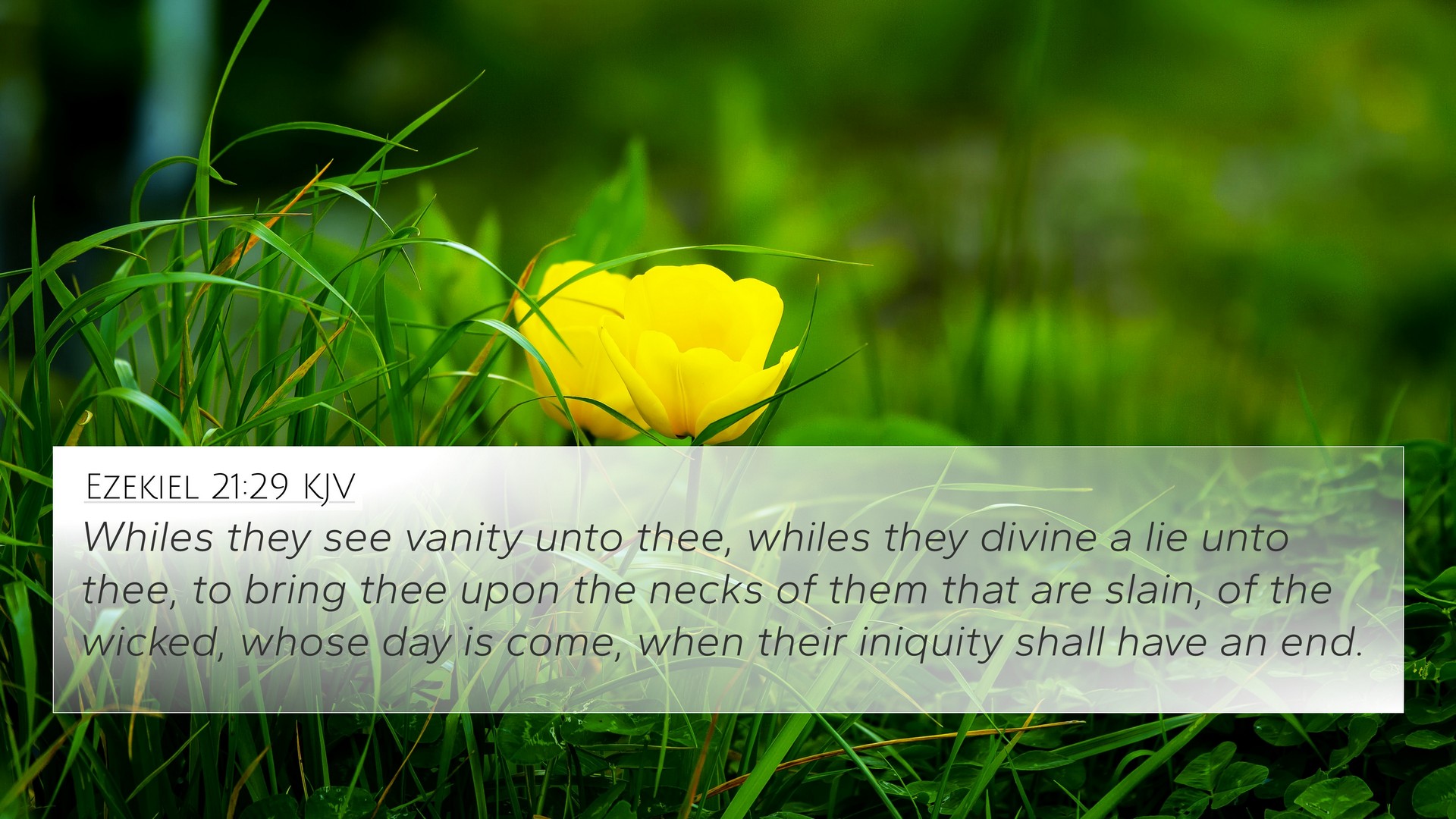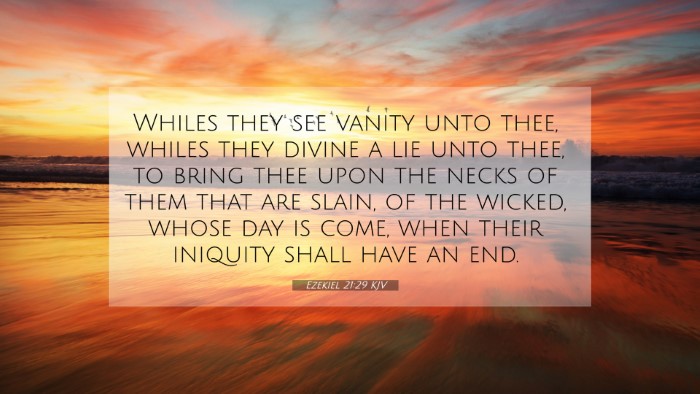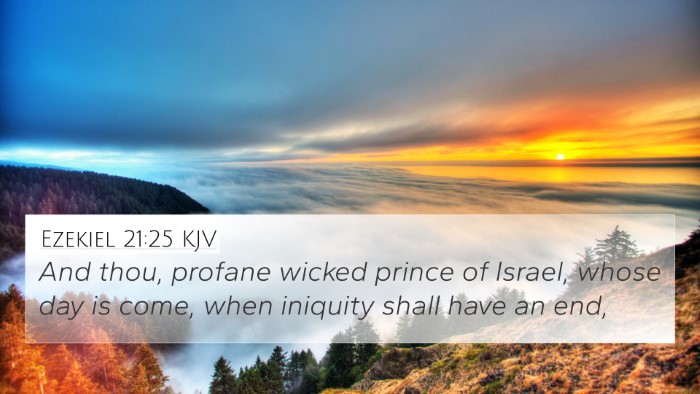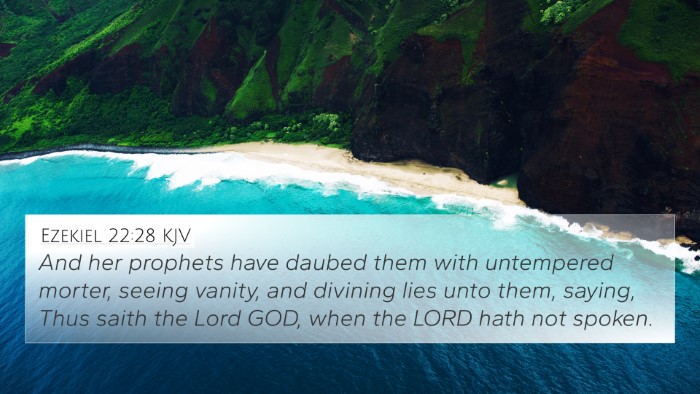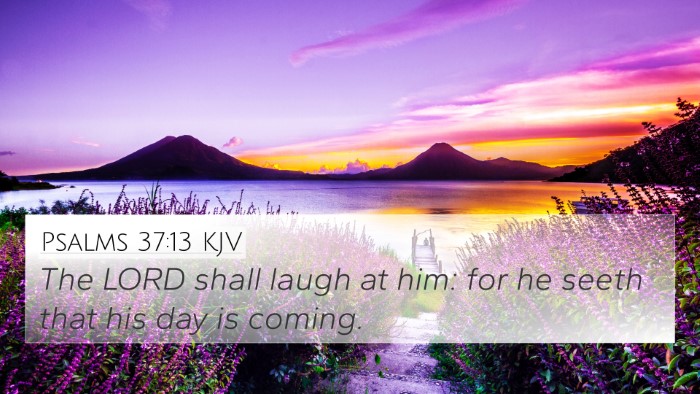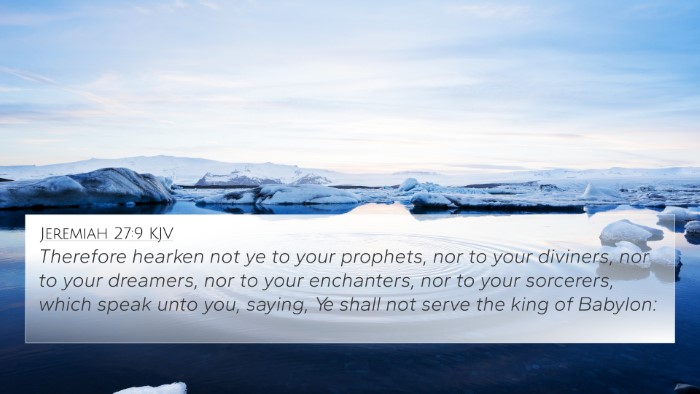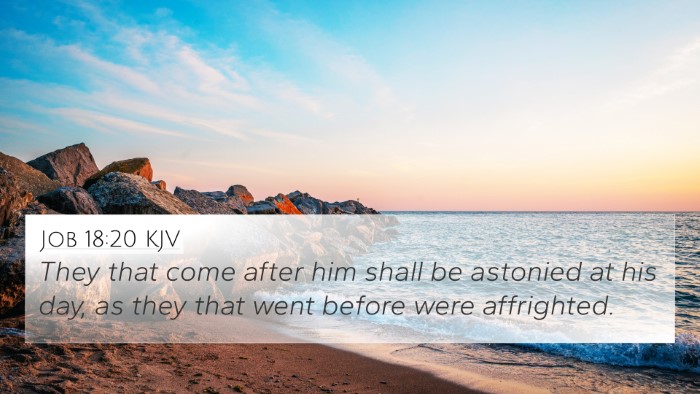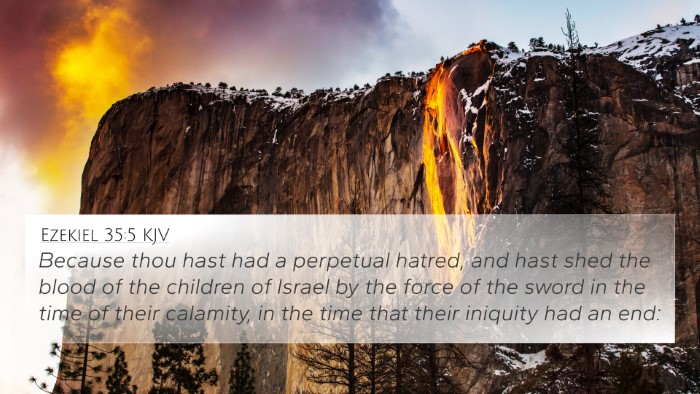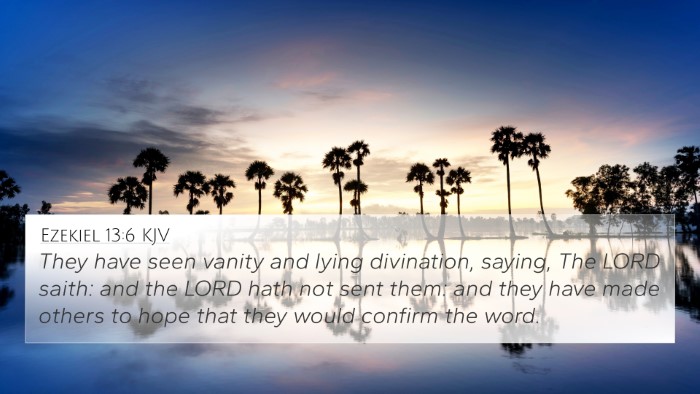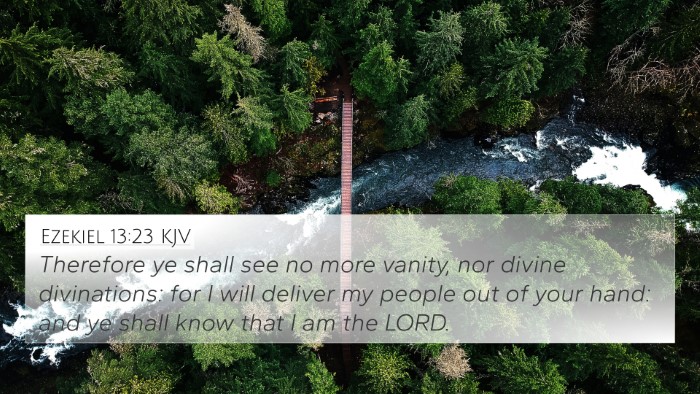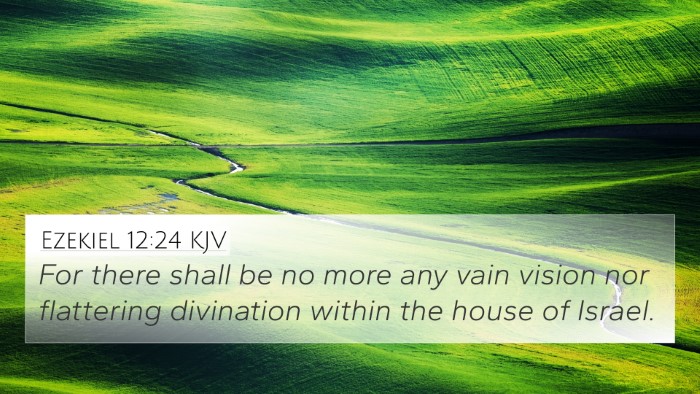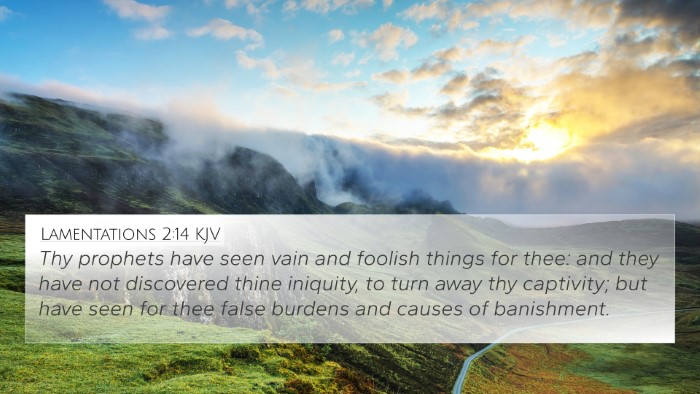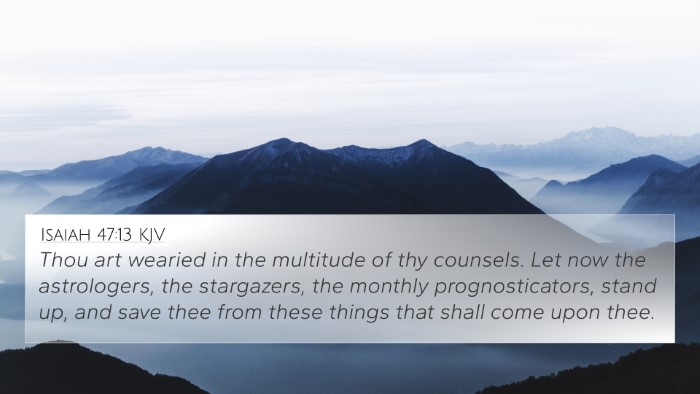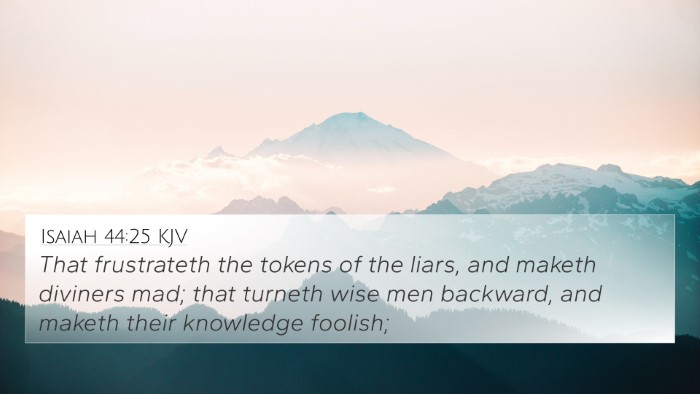Understanding Ezekiel 21:29
Ezekiel 21:29 states: "While they see vanity unto thee, while they divine a lie unto thee, to bring thee upon the necks of them that are slain, of the wicked, whose day is come, when their iniquity shall have an end." This verse presents a critical perspective on prophecy and divine judgment, emphasizing deceit and persecution against the righteous.
Context and Meaning
This verse occurs in a larger narrative concerning the imminent judgment of Jerusalem and its inhabitants. The prophet Ezekiel serves as a mouthpiece for God's judgment against the sinful people of Israel. This engagement with themes of deception, wrongful prophets, and the assurance of divine justice invites further exploration.
Insights from Public Domain Commentaries
-
Matthew Henry:
Henry's commentary on this verse elucidates the theme of false prophecies and the dangers of believing in human interpretations over divine truths. He warns about the vanity of relying on outward appearances and assurances from deceitful prophets.
-
Albert Barnes:
Barnes highlights the significance of the phrase "vanity" and how it reflects the empty promises of the false prophets. He emphasizes that their prophecies lead to destruction and underscores God’s authority to judge those who lead others astray.
-
Adam Clarke:
Clarke comments on the judicial aspect of God’s warning against Israel. He explains that the use of divine imagery here indicates a severe warning of accountability and the ultimate reckoning for the iniquities committed.
Cross-References for Ezekiel 21:29
Understanding Ezekiel 21:29 can be enriched through comparative Bible verse analysis. Below are essential Bible verses that correspond to its themes:
- Ezekiel 13:3 - Addresses false prophets and their deceptive practices.
- Jeremiah 14:14 - Discusses the theme of false visions and deceitful prophecies.
- Isaiah 30:10 - Highlights the inclination of the people to hear smooth and deceitful words rather than the truth.
- Matthew 7:15 - Warns against false prophets who come in sheep’s clothing.
- 2 Peter 2:1 - Mentions false teachers who will secretly bring in destructive heresies.
- Zephaniah 3:4 - Illustrates the corruption of the prophets and priests in Jerusalem.
- 1 Timothy 4:1 - Talks about the apostasy and seduction by deceptive spirits.
Thematic Connections
The themes of Ezekiel 21:29 are deeply interwoven with various scriptural narratives that highlight the consequences of disobedience and the importance of discernment. The linkage serves to point out that reckoning comes not merely from physical dangers but from the spiritual consequences of straying from divine guidance.
Tools for Bible Cross-Referencing
Utilizing tools for Bible cross-referencing enhances understanding of complex themes found in scripture. Here are some resources to consider:
- Bible concordance - A comprehensive index of biblical terms and scriptural references.
- Bible cross-reference guide - A tool to help identify related passages across the Bible.
- Cross-reference Bible study - Applying cross-referencing methods for in-depth study.
Conclusion
Ezekiel 21:29 serves as a poignant reminder of the spiritual battle against deception within the faith community. By exploring cross-references and thematic connections, readers can appreciate both the historical context and the relevance of this scripture to contemporary beliefs. Engaging with these insights fosters a deeper understanding of God’s justice and the need for discernment in the face of false teaching.
